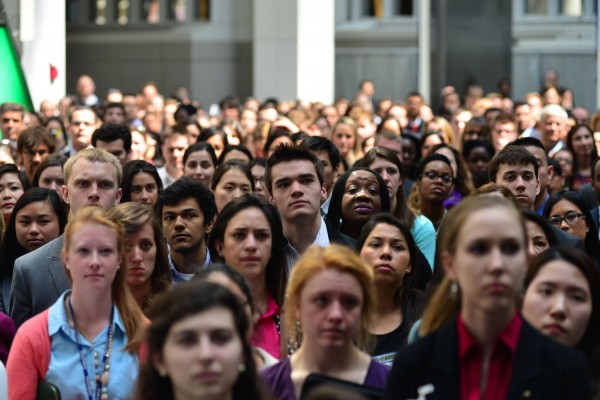
Recent studies have found that millennials are less religious than their counterparts from previous decades, but why are young adults losing their faith?
American individualism might be to blame for a decrease in both commitment to religion and spirituality, says the latest iteration of the “Generational and Time Period Differences in American Adolescents’ Religious Orientation, 1966–2014” study performed by PLOS One (Public Library of Science).
The main conclusion of the study is that millennials are the least religious generation of the past 60 years, and possibly in the history of the United States. Other highlights from the findings include the following:
- Twice as many current high school seniors and college freshmen “never attend” religious services compared to those of the late 1970s.
- Twice as many high school seniors and three times as many college freshman report their religion as “none” compared to the similar cohort in the 1980s.
- The largest declines of religious activity was noted in girls, low-SES individuals, whites, and people living in the northeast.
- The smallest declines were reported by Black Americans and conservatives.
The study has drawn data from over 11 million adolescents aged 13 to 18 in four pulls taken between 1966 and 2014. The creators of the study say that since the subjects are same-aged persons from different time periods it allows them to consider the results as generational as opposed to resulting from the maturation of certain persons. In other words, their observations can be attributed completely to changes in societal attitudes and beliefs.
Perhaps the most interesting statistic revealed by the study was that 20% fewer college freshmen consider themselves as above average in spirituality, which contradicts recent studies (such as this one done by PEW research center) that state that millennials are decreasing in religious identification but still maintaining their level of spirituality.
Dr. Jean Twenge,lead author of the PLOS One study, posits that an increase in individualism among younger generations might be at work here. Turning inward and focusing on the self does not match well with a commitment to the institution of religious life. Dr. Twenge said that in eras when individualism is high, religious involvement is low. When the focus is on the individual, there is little interest in belonging to a religious community that will likely focus on helping others.
But during this period of religious decline, another powerful body of influence has been on the rise: social media. Some attribute the modern rise in social media sites like Facebook and Instagram as a significant influence on the individualistic culture. People engage in many online communities of like-minded people through social networks such as Facebook, Instagram, Twitter, Pinterest, and countless others. Instead of gathering in a church, today’s youth huddle – or whatever the cyber equivalent of that would be – around the posts, pictures, and tweets of the folks they follow or with which they share group membership.
